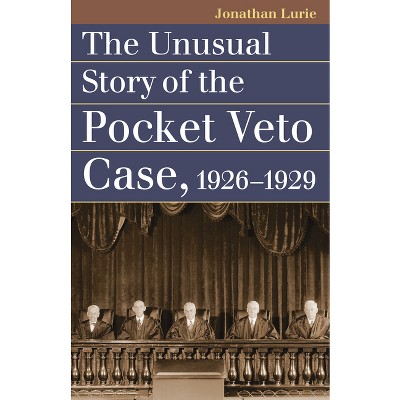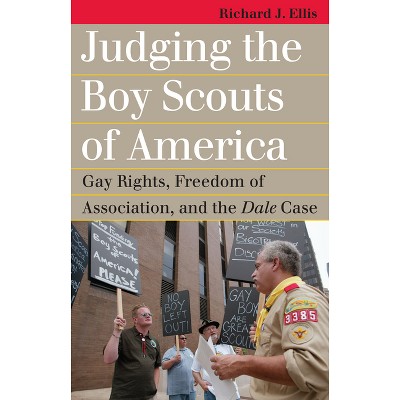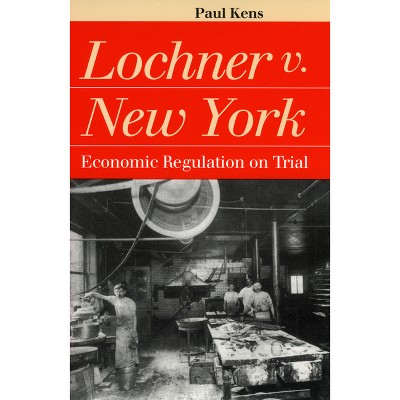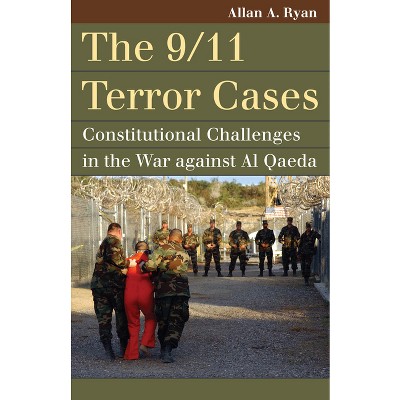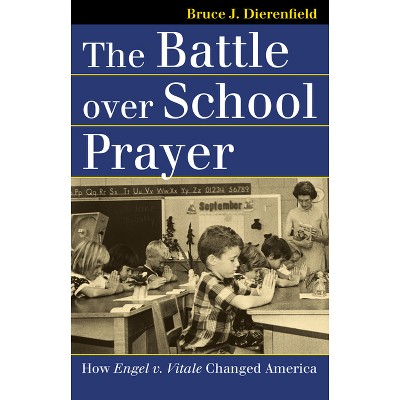The Slaughterhouse Cases - (Landmark Law Cases & American Society) by Ronald M Labbe & Jonathan Lurie (Hardcover)

About this item
Highlights
- The Fourteenth Amendment to the Constitution, ratified in 1868, sought to protect the rights of the newly freed slaves; but its first important test did not arise until five years later.
- Author(s): Ronald M Labbe & Jonathan Lurie
- 295 Pages
- Freedom + Security / Law Enforcement, Constitutional
- Series Name: Landmark Law Cases & American Society
Description
Book Synopsis
The Fourteenth Amendment to the Constitution, ratified in 1868, sought to protect the rights of the newly freed slaves; but its first important test did not arise until five years later. When it did, it centered on a vitriolic dispute among the white butchers of mid-Reconstruction New Orleans. The rough-and-tumble world of nineteenth-century New Orleans was a sanitation nightmare, with the city's many slaughterhouses dumping animal remains into neighboring backwaters. When Louisiana finally authorized a monopoly slaughterhouse to bring about sanitation reform, many butchers felt disenfranchised from their livelihoods. Framing their case as an infringement of fundamental rights protected by the new amendment, they flooded the lower courts with nearly 300 suits. The surviving cases that reached the U.S. Supreme Court pitted the butchers' right-to-labor against the state's "police power" to regulate public health. The result was a controversial and long-debated decision that for the first time addressed the meaning and import of the Fourteenth Amendment. Speaking for the slim majority in the Court's 5-4 decision, Justice Samuel F. Miller upheld the state's actions as a fair use of its "police power." Of much greater import, however, was Miller's finding that the Fourteenth Amendment was intended exclusively as a means of protecting and redressing the suffering of former slaves. The result was a very restricted interpretation of the "privileges and immunities," "due process," and "equal protection" clauses of the new amendment. Accustomed to a very limited federal presence in the states, the Court refused to allow the broad terms of a single amendment to alter the existing balance of power between the states and the federal government. In striking contrast, the minority, represented most notably by Justice Stephen Field, claimed that the Fourteenth Amendment had been intended to apply to all Americans, not just former slaves. In particular, the minority contended, it guaranteed the New Orleans butchers a right to equal treatment in the exercise of the police power. The position of the dissenters foreshadowed an aggressive use of the Court's power in the protection of fundamental rights in the future. In The Slaughterhouse Cases, Labb and Lurie take a much needed look at a landmark decision that has been far more cited than closely studied. Engagingly written and insightfully argued, the book provides the most complete analysis yet of this controversial Supreme Court decision, fills a major gap in American history, law, and politics, and sets the standard for all future discussions on the subject.Review Quotes
"Labbé and Lurie have painted, with graceful style, a magnificent panorama of a key episode of nineteenth-century legal history. . . . From their vivid description of the public health hazards afflicting nineteenth-century New Orleans to their superb chapter surveying the Supreme Court led by Chief Justice Chase, this is compellingly readable history."--Journal of American History
"The authors have done a remarkable job unraveling the complex threads of this intriguing legal history."--Louisiana History
"An outstanding book, deeply researched and beautifully written. The authors examine with great skill and care the social and political background, and the legal implications, of one of the pivotal cases of American constitutional history. In every way this is a vivid, intriguing, illuminating case study: a model for work of this kind."--Lawrence M. Friedman, author of A History of American Law
"Just about everyone who studies the Fourteenth Amendment addresses the Slaughterhouse Cases, but this is the first book to focus so completely on the case itself. . . . An excellent book that fills a significant gap."--Paul Kens, author of Lochner v. New York: Economic Regulation on Trial
"A superb work that tells a lively and compelling story."--Herbert Hovenkamp, author of Enterprise and American Law, 1836-1937

